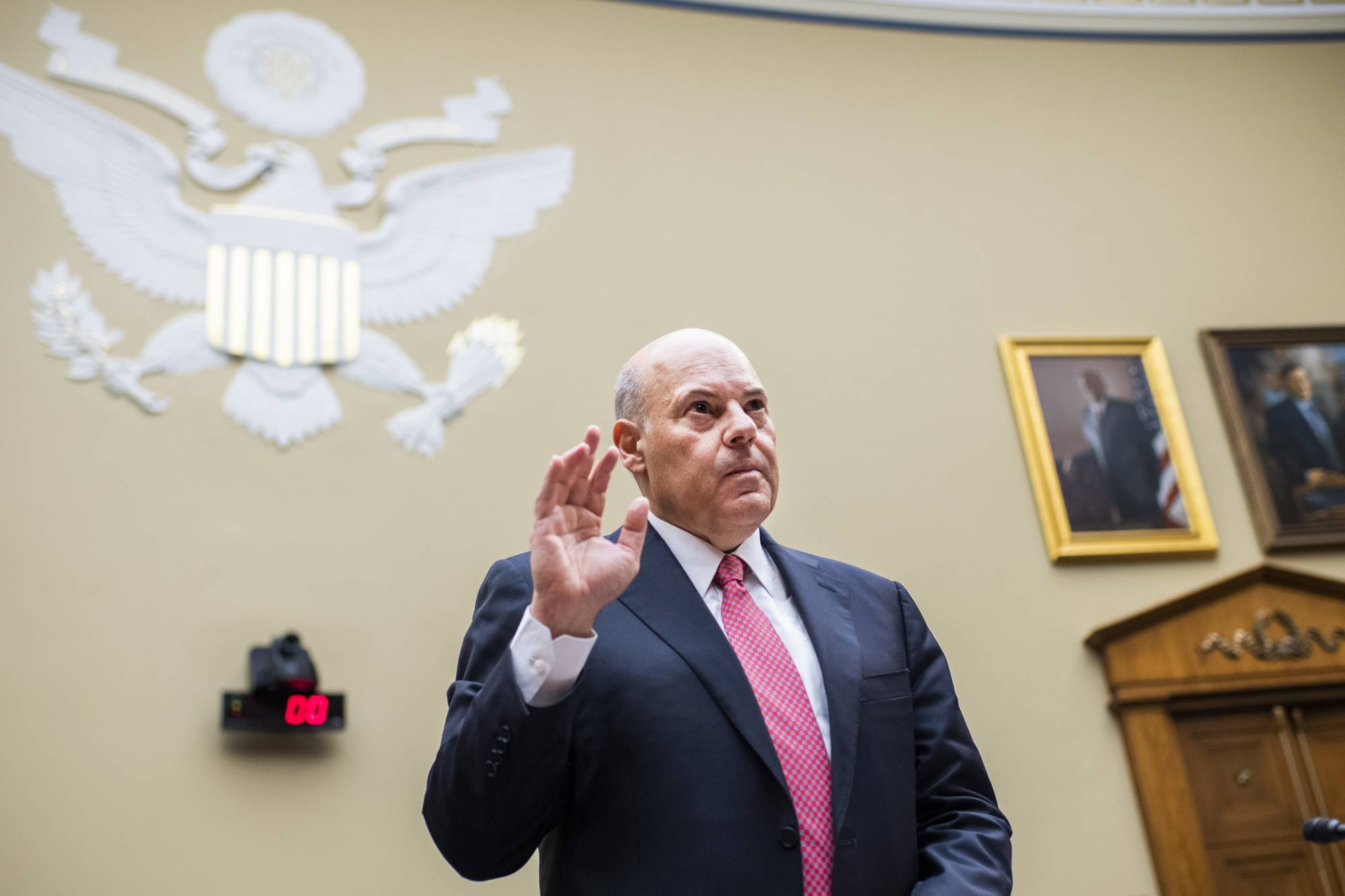AP NewsBreak: Illinois tech chief’s memberships cost $208K
Documents obtained by The Associated Press show that Illinois Gov. Bruce Rauner's information technology chief has contracted to spend $208,000 in tax dollars f...
SPRINGFIELD, Ill. (AP) — Illinois Gov. Bruce Rauner’s technology czar has contracted to spend $208,000 in tax dollars for two professional memberships even though the state is without a budget and is billions of dollars in debt, according to documents obtained by The Associated Press.
Hardik Bhatt, the $145,000-a-year secretary of the Department of Innovation and Technology, has had a $50,000 annual membership in the Chief Information Officer Leadership Council of the Virginia-based executive-assistance organization CEB Inc. since 2015. He’s also approved a $29,000 subscription and annual renewal for his agency, known as DoIT, with CEB’s Risk Leadership Council.
DoIT, an agency created by executive order shortly after Republican Rauner took office in January 2015, is responsible for upgrading Illinois’ digital technology infrastructure, providing statewide computer and telecommunications and oversight, improving cyber security, more precise management of the state’s $1 billion investment portfolio, and making services for taxpayers easier to access.
DoIT spokeswoman Jennifer Schultz said the membership and subscription are “strategic investments” to help the state improve on an “outdated, inefficient” and unsafe system.
“These groups provide guidance and research to states and Fortune 500 companies,” Schultz said in a prepared statement. “The benefit to Illinois is to learn and implement best practices in organization design, cyber-security, IT governance and other areas to help us avoid making the same mistakes the state has made previously in IT.”
But the expenditures frustrated Rep. Fred Crespo, chairman of the House Appropriations-General Services Committee, which is scheduled to hear testimony about DoIT’s budget Tuesday. The Hoffman Estates Democrat blamed it partly on the fact that DoIT was created by Rauner and is not subject to legislative oversight.
Crespo said he’s troubled that money is spent on these services when the two-year budget stalemate between Rauner and Democrats controlling the General Assembly has meant millions of dollars in cuts to human-service providers and higher education.
“We’re trying to connect the dots, figure out how much money is being spent” by DoIT, Crespo said. “These social service providers, universities that are dying, why are spending money on new computers at the expense of all these families, all these students, all people hurting. Tell me how that makes sense?”
A spokeswoman for CEB Inc. did not respond to a request for comment. The contract for the risk leadership council says membership provides “proven best practices, research and insight, peer benchmarks, decision and diagnostic tools, executive networking, advisory support and live and online learning events.”
Although the state had chief information officers prior to DoIT’s birth, there is no evidence of membership or subscription payments to CEB for several years prior to 2015.
Crespo noted that after GOP Comptroller Leslie Munger was defeated in a special election in November, she transferred $71 million from general revenue funds to specially earmarked accounts that in large part benefited DoIT. The membership money is out of one of them, a fund for “data processing and informational services.”
Bhatt’s $50,000 leadership council memberships were paid for 2016 and 2017, as was one year of the risk-group membership. But Munger’s replacement, Democrat Susana Mendoza, who has sparred with Rauner over spending, particularly for DoIT, has not paid one year of each membership, totaling $79,000. Mendoza has held up payment while seeking answers general questions from DoIT on its initiatives. But the state is ultimately obligated to pay it because Bhatt signed contracts.
“This type of waste of tax dollars is why I will always demand accountability and transparency from every state agency,” Mendoza said in a statement released to the AP Monday. “Right now we could use an extra $200,000 for services for children, seniors and people who need help,”
Rep. David Harris of Arlington Heights, the Republican spokesman on the House general services appropriations panel, said the CEB benefits sound like they’d be helpful to technology chiefs for Fortune 500 companies or other large corporations but wondered whether there are many public-sector members.
“It’s a significant amount of money and it begs the question, is there a significant amount of benefit?” Harris asked. “Are there benefits being provided that are available in more public forums that don’t cost $50,000?”
___
Contact Political Writer John O’Connor at https://twitter.com/apoconnor. His work can be found at http://bigstory.ap.org/content/john-oconnor.
Copyright © 2024 Federal News Network. All rights reserved. This website is not intended for users located within the European Economic Area.





